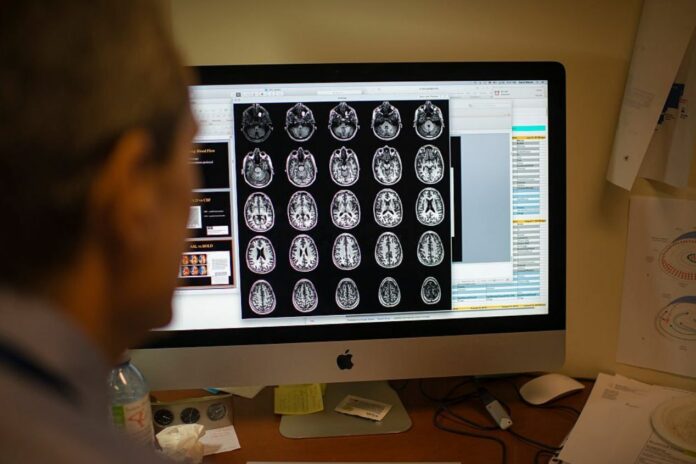Alzheimer’s disease is a degenerative brain condition that causes gradual loss of memory, intellectual capability, behavioral and motor abilities. Alzheimer’s disease usually doesn’t reveal itself until a person is well into old age.
More than 6 million Americans, mostly those aged 65 and over, may have Alzheimer’s disease-related dementia, according to various estimates.
Most cases of dementia in the elderly population are brought on by Alzheimer’s disease, which is presently the 7th biggest cause of mortality in the US.
The loss of cognitive abilities, such as thinking, remembering, and reasoning, as well as behavioral skills to the point that it affects a person’s day-to-day functioning is known as dementia.
Dementia gets worse from its mildest stage, when it just starts to affect a person’s ability to function, to its worst stage, when the person needs help with all of their daily tasks and can’t do anything on their own.
Different kinds of changes in the brain can lead to different kinds of dementia.
In a recently published study, the brains of Alzheimer’s patients were found to contain abnormally high concentrations of one particular sugar.
The new study shows that sugar that comes from natural sources may play a big role in the risk of dementia.
The authors caution that diet is a driving factor in the development of Alzheimer’s disease, with certain types of sugar being a major contributor.
According to research published in ScienceDirect, fructose may provide insight into the onset and potential therapy of Alzheimer’s disease.
Fructose is a type of natural sugar that is found in honey, fruit juices, some vegetables, and some fruits.
Many processed foods and drinks rely on refined sugar and high-fructose corn syrup, both of which include natural sweeteners.
Researcher Richard Johnson, who led the study, remarked, “We make the case that Alzheimer’s disease is driven by diet.”
According to Johnson and his colleagues, Alzheimer’s is a negative variant of a survival mechanism that animals and our distant ancestors used during periods of food shortage.
“A basic tenet of life is to assure enough food, water and oxygen for survival.
“Much attention has focused on the acute survival responses to hypoxia and starvation. However, nature has developed a clever way to protect animals before the crisis actually occurs.”
Foraging for food was a survival mechanism early humans adopted when they were threatened with famine.
Focus, quick evaluation, impulsivity, inquisitive behavior, and a willingness to take risks are all necessary for foraging.
Fructose has a role in enhancing exercise by inhibiting everything that gets in the way, such as recent memories.
The sugar helps to calm these centers, enabling the collection of food to take center stage.
The metabolism of fructose, whether consumed or just created by the body, was revealed to be the trigger for the complete foraging response, according to the University of Colorado Anschutz Medical Campus researchers.
Also, the team saw that fructose cut off blood flow to the self-control areas of the brain, including the thalamus, hippocampus, and cerebral cortex.
According to Johnson, the slowdown in brain metabolism caused by fructose at first was reversible and intended to be helpful.
But repeated fructose metabolism, which is chronic and persistent, causes a decline in cerebral metabolism that results in gradual brain shrinkage and cell death, which are all symptoms of Alzheimer’s disease.
The researchers hypothesize that although the survival reaction benefited early humans, it currently causes people to consume too many high-fat, sugary, and salty meals, which increases the production of fructose.
Fructose is produced in the brain, which is alarming since it might cause inflammation and eventually Alzheimer’s disease.
“You can find high fructose levels in the brains of people with Alzheimer’s as well,” Johnson added.
More dietary and pharmaceutical studies are now required, the researchers said, to determine if reducing fructose might help treat, prevent, or manage the illness that steals brain function.
Image Credit: Brian B. Bettencourt/Toronto Star via Getty Images
